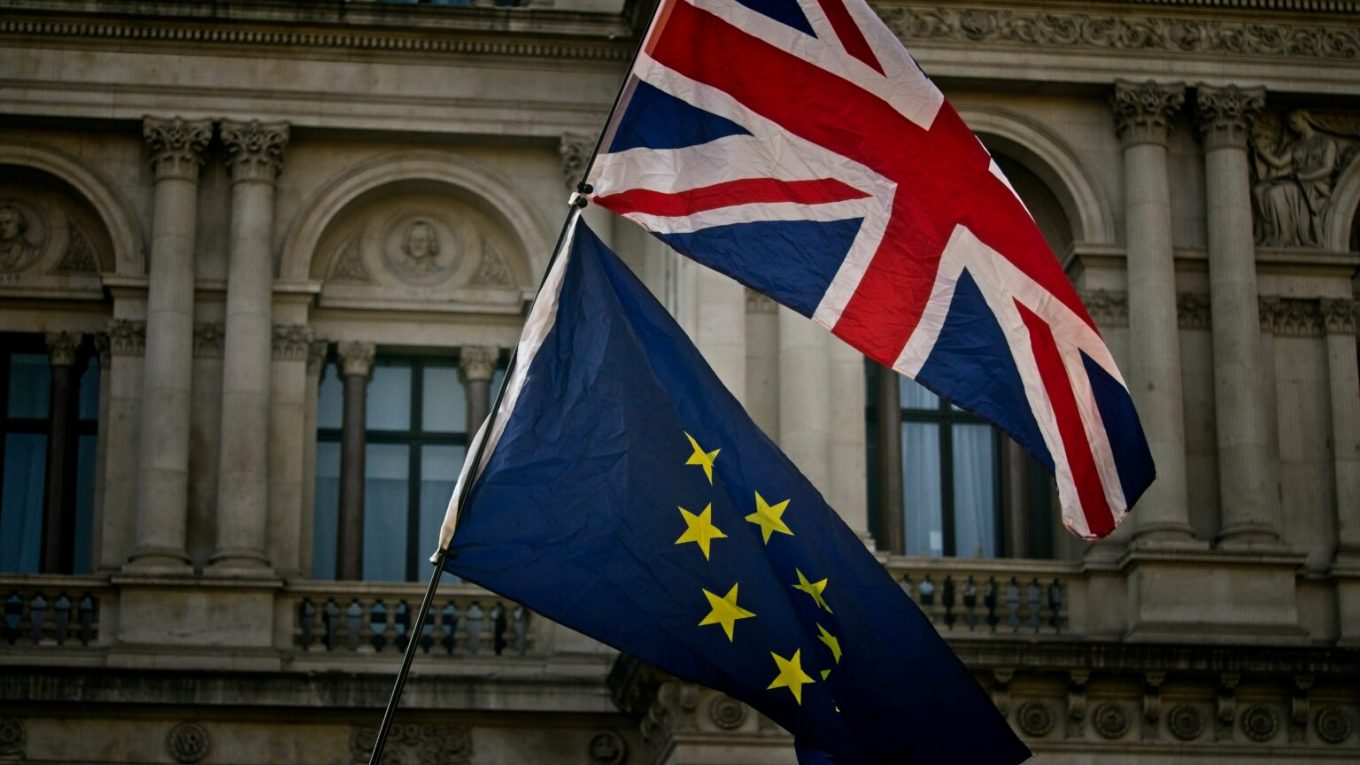Navigating the Green Path: Environmental Policy Making in a Post-Brexit UK
Introduction
In the wake of Brexit, the United Kingdom (UK) has embarked on the task of detangling the environmental policy that they wish to keep from the European Union’s directives they have been tied to for decades. The UK possesses the autonomy to craft their own green path. This is, however, a more complex task than civil servants simply trudging through policy documents. It comes with a plethora of challenges and with critics claiming that the UK has already fallen way behind on almost every area of Environmental Policy , it is clear there is a way to go. Despite this, it is not all doom and gloom. The UK is in a unique position to expand and become a global leader in the environment by constructing policy to meet domestic needs and embark on international cooperation.

Current challenges being faced post-Brexit
The EU has a large effect upon its members environmental policies (Zito et al, 2020:87), and the case of the UK was no different. It had long been characterised by a profound amount of Europeanisation of the policy (Gravey and Jordan, 2023:2350). It is now the job of the UK to think on its own feet about what they require, and how they wish to implement it.
A major challenge lies in the devolved governments. Environmental regulation comes as a devolved power, and thus naturally are pursuing different frameworks. Scotland has declared that it will follow EU regulations, whilst in the special case of Northern Ireland, the formal alignment with the European Single Market in key areas means that it is also committed to continuing to shadow aspects of EU Environmental Law (Baldock, 2022:1). In England there is no preference for aligning with EU partners in addressing environmental questions (Baldock, 2022:3). This means that while Westminster is trying to show its independence post-Brexit, they are struggling to depart from the overarching European policies.
Another of these challenges comes from the loss of the collaborative framework within the EU, which removes certain standards and protections which have previously been in place. Critics have expressed that without the oversight of EU regulations, the UK Government may prioritise economic interests over environmental conservation leading to weaker standards (Burns, 2015:1). Leaving the EU means that the UK needs to form its own, independent regulatory bodies to address issues in policy.
Concerns: an Example
Many environmental concerns have arisen since Brexit, some of which are substantiated. It has been found that since Brexit, the UK has weakened its environmental rules in key policy areas, from chemicals to climate. In tandem with environmental policy, the uncertainty pertaining to future trade agreements could result in deregulation in attempt to facilitate foreign investment.
An example of this concern can be found in chemical policy. The UK has left the EU chemical regulatory body called EU Reach and has created its own, UK Reach. The Reach bodies contain a list of substances they deem to be a concern. The last additions to the UK’s list were made more than three years ago in June 2020, whereas in comparison the European Chemicals Agency has added 26 substances to its equivalent list. This lack of proactivity leads to questions on whether the UK is doing enough to protect its citizens from the harmful effects of toxins, as well as numerous other areas of concern.

Opportunities and What has been done already
Although this is a time when almost all areas of policy in the UK need changes, it is the embodiment of the opportunity Brexit presents. The UK has the option to now position itself as a champion of sustainability and good practice. Positive strides have been made toward a greener UK through tailoring of regulations.
The Environment Act
The Environment Act which became law in 2021 acts as the UK’s framework for environmental protection. This Act was intended to fill the gaps that would be left after removal of the original directions from the EU. Amongst its lines contained a new environmental watchdog, the Office for Environmental Protection and other government bodies to ensure that environmental laws are complied with. This is the first major step taken by the UK toward bringing policy to the same standard as the continually assessd European counterpart.
Conclusion
The exercising of the flexibility of no longer being tied to EU directive remains in early days for the UK Government, and what other strides will be made still remains to be seen. However, despite the concerns of critics around what has not been achieved; there is benefit in looking at the number of positive steps that have been taken.
References
Baldock, D. (2022) Environmental regulation in the UK after Brexit, Friedrich Ebert Stuftung. Available at: https://library.fes.de/pdf-files/bueros/london/19842.pdf (Accessed: 21 February 2024).
Burns, C. (2015) The EU referendum and the environment, Friends of the Earth. Available at: https://friendsoftheearth.uk/sites/default/files/downloads/eu-referendum-environment-81600.pdf (Accessed: 21 February 2024).
ClientEarth Communications (2022) The UK environment act – what’s happening now?, ClientEarth. Available at: https://www.clientearth.org/latest/news/why-the-uk-environment-bill-matters/#:~:text=The%20Environment%20Act%2C%20which%20became,intended%20to%20fill%20the%20gap (Accessed: 21 February 2024).
Gravey, V. and Jordan, A.J. (2023) ‘UK environmental policy and Brexit: Simultaneously de-europeanising, disengaging and (Re)-engaging?’, Journal of European Public Policy, 30(11), pp. 2349–2371. doi:10.1080/13501763.2023.2201613.
Horton, H. (2024) Brexit divergence from EU destroying UK’s vital environmental protections, The Guardian. Available at: https://www.theguardian.com/environment/2024/jan/19/brexit-divergence-from-eu-destroying-vital-environmental-protections (Accessed: 21 February 2024).
Niranjan, A. (2024) UK ‘used to be a leader on climate’, lament European lawmakers, The Guardian. Available at: https://www.theguardian.com/environment/2024/jan/20/uk-used-to-be-a-leader-on-climate-lament-european-lawmakers (Accessed: 21 February 2024).
Zito, A.R. et al. (2020) The Future of European Union Environmental Politics and policy. London, UK: Routledge.

This post was very informative regarding the UK’s path forward for its post-Brexit policy. This period of policy and regulatory transitions poses unique challenges as entirely new frameworks need to be built to successfully implement the new changes. It has been concerning that the UK has recently digressed in areas of environmental policy. While there are understandable concerns that subsequent policy may prioritize profits over the environment, the current opportunity for greater independence in environmental policy poses exciting possibilities, allowing room for policy tailored to the UK environment’s specific needs. Hopefully this recent digression is merely a case of growing pains which will right itself as the government continues to execute the broad political changes imposed by Brexit. In this regard, I loved how the author ended the post on a positive note, and encouraged the reader to note the positive progress that has happened. Despite the shortcomings of the environmental policy’s current progression, it is not set in stone. This post-Brexit period still holds many opportunities, and it is possible that the government can implement a successful policy.
The author evidently has extensive knowledge and understanding of environmental policy-making in the UK. I found the example of UK Reach particularly interesting, the lack of additions UK’s list of concerning substances was very impactful. I would add that the current government’s policies play a major part in why green policies may be less extensive than they were under the EU. The conservatives are less likely to introduce green policies as it doesn’t align with their ideology, while they have vowed to achieve net zero by 2050 they have loosened the restrictions. They are scrapping energy efficiency requirements and supporting new oil and gas in the North Sea. The conservatives could be more reluctant to expand environmental policy and may consider the EU’s policy too restrictive. The UK under the conservative may not want to reach the same standard of environmental policy as the EU, not that it doesn’t have the ability or that this policy area has been neglected. It is important to consider as well that the Greens in the EU parliament represent a more significant block than they do in the UK and thus EU policy towards green policy will be far more extensive than the UK.
Your blog post provides a comprehensive overview of the challenges and opportunities facing the UK in crafting its own environmental policies post-Brexit. It effectively highlights the complexities involved in untangling EU regulations and the diverse approaches taken by the devolved governments. To improve the discussion in the blog, you could possibly explore potential strategies the UK could adopt to overcome these challenges. For instance, emphasizing the importance of strong stakeholder engagement and cross-border collaboration to ensure cooperation and effectiveness in environmental policymaking could offer practical insights. Additionally, while you’ve touched upon concerns about potential deregulation and the need for independent regulatory bodies, delving deeper into specific mechanisms to safeguard environmental standards could provide readers with a clearer understanding of the steps being taken to address these issues.
Overall, your blog post provides a thought-provoking analysis of the complexities surrounding the UK’s environmental policy post-Brexit, and further exploration of potential solutions and stakeholder engagement could enhance its impact and relevance.